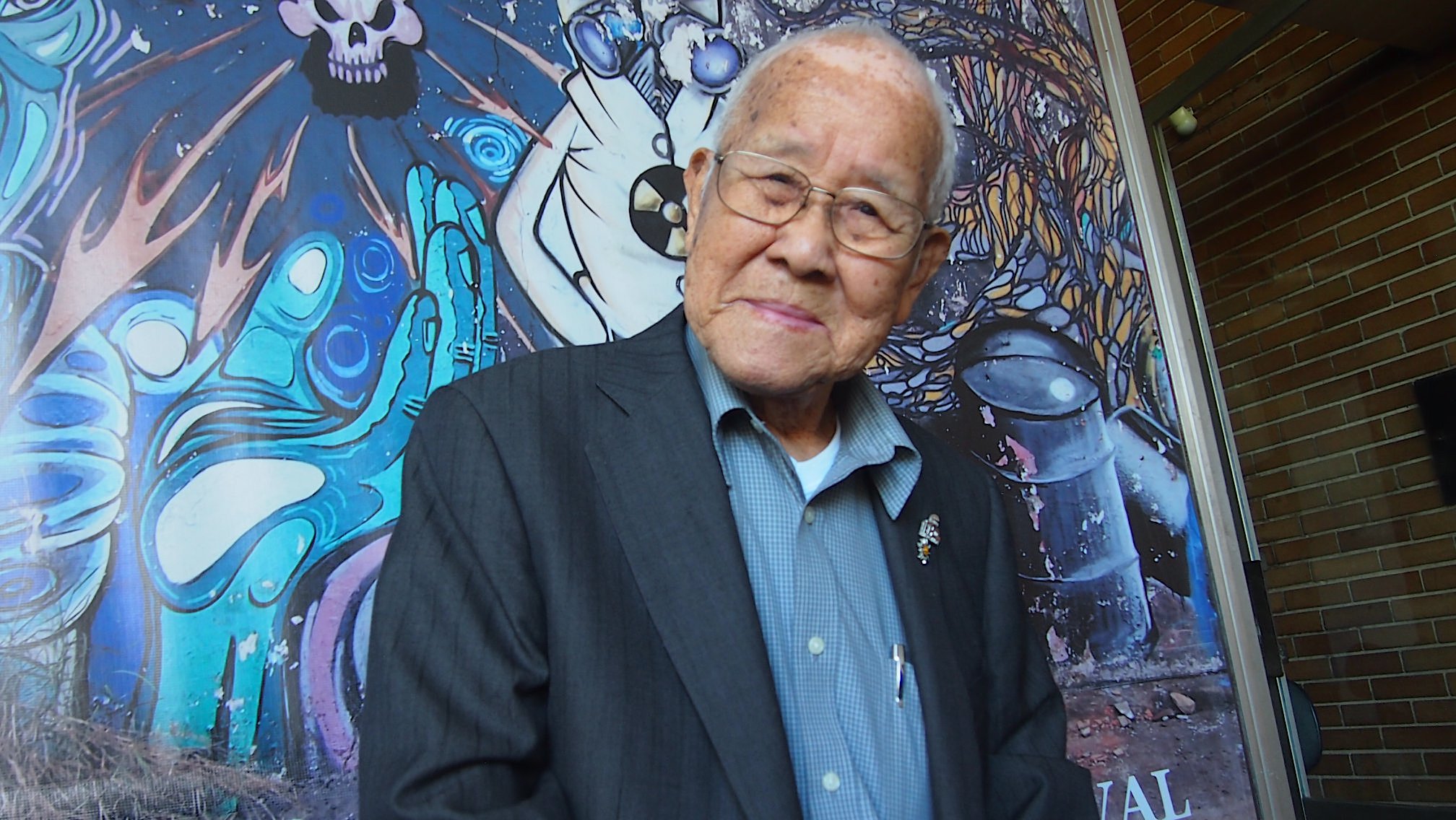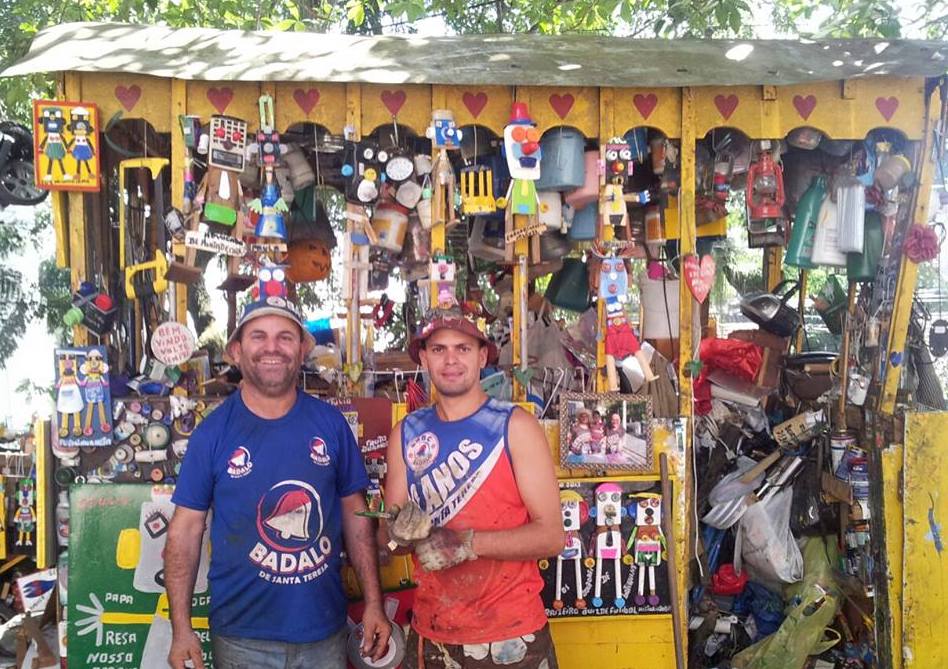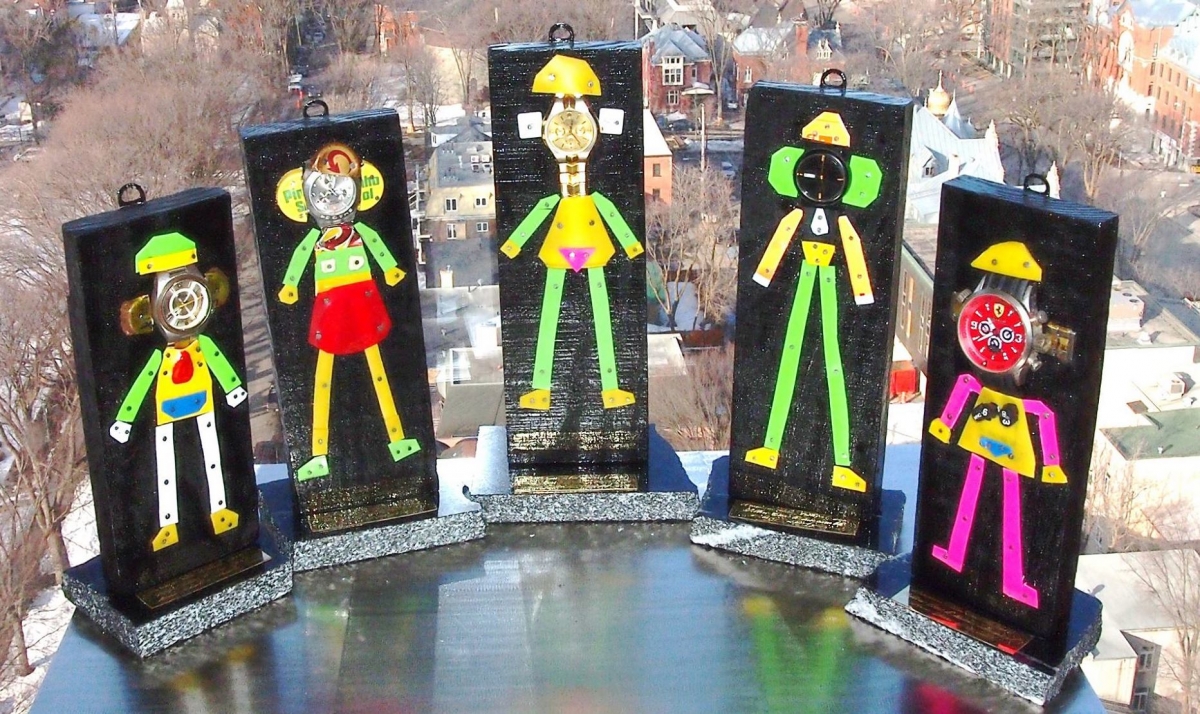
Photo: Hibakusha Takashi Morita at the Uranium Film Festival 2019 in the Cinematheque of Rio de Janeiro´s famous Museum of Modern Art (MAM Rio). Photo by Norbert Suchanek
75 years Hiroshima & Nagasaki - 10 years International Uranium Film Festival
Rio de Janeiro / Berlin - 75 years ago, on August 6, 1945, the United States dropped the first atomic bomb on Hiroshima during the war against Japan. Three days later, a second nuclear bomb destroyed Nagasaki. Tens of thousands of women, children and men instantly burned or evaporated in the immense heat.
In total, the radioactive explosions directly killed about 140,000 of the 350,000 inhabitants of Hiroshima at the time. Of the 263,000 inhabitants of Nagasaki, around 80,000 died in the atomic flash and the folowing radioactive hell.
The International Uranium Film Festival remembers this crucial moment in the history of mankind with its trophy, which has been awarded annually since 2011 to the best nuclear films of the year and to special personalities and heroes of the atomic age.
The festival trophy is a work of Brazilian recycling artist Getúlio Damado. Getúlio Damado and his son Victor Damado live and work in Santa Teresa in Rio de Janeiro, creating art from the garbage of the consumer society that they find in the streets of Santa Teresa.

On August 6, 1945, exactly at 8:15 a.m., the atomic bomb exploded over the city center of Hiroshima. This was the moment when all Hiroshima clocks stopped due to the electromagnetic effects of the nuclear explosion. Three days later, on August 9, the clocks in Nagasaki stopped exactly at 11:02 a.m. That is why artist Damado uses old, brocken watches for the head of the Uranium Film Festival’s trophy.

Last year, 2019, the trophy of the 9th International Uranium Film Festival in the Cinematheque of Rio de Janeiros famous Modern Art Museum (MAM Rio) was awarded to two Japanese Hibakusha (atomic bomb and radioactivity survivors) emigrated to Brazil: Takashi Morita (96 years) and Kunihiko Bonkohara (79 years). The trophy was also awarded to Brazilian filmmaker Marcello Marques for his documentary “Cidade Radioativa” (Radioactive City).
This year, 2020, the International Uranium Film Festival celebrates its tenth anniversary in Berlin. Promising candidates for the festival trophy include Polish director Lech Majewski for his feature film "Valley of the Gods" (Dolina Bogów), starring John Malkovich, and Italian filmmaker and journalist Lisa Camillo for her documentary "Balentes: The Brave Ones".
The final decision, however, will only be made in October at this year's Uranium Film Festival in Berlin. From October 15 to 18, the festival in the cinema in the Kulturbrauerei in Prenzlauer Berg will feature 14 “atomic” films from ten countries in the presence of several filmmakers such as Lech Majewski, Lisa Camillo, Alessandro Tesei (Italy), Claus Biegert (Germany) and Dragoș Show Turea (Moldova) and Markus Kaiser-Mühlecker (Austria) and award the best productions.
"The horror of the atomic bomb attacs on Hiroshima and Nagasaki, the thousands of atomic bomb tests and nuclear accidents like Chernobyl or Fukushima and their catastrophic consequences or the terrible effects of the use of uranium ammunition in the war against Iraq must not be forgotten," said festival director Márcia Gomes de Oliveira.
The Uranium Film Festival helps to not forget Hiroshima, Nagasaki, Three Mile Island, Chernobyl or Fukushima. Help the festival too!
DONATE with PayPal
Berlin festival program: https://uraniumfilmfestival.org/de/programm-berlin-2020
Festival partners in Berlin are the Coalition to Ban Uranium Weapons (ICBUW), the Lawyers' Association against Nuclear Weapons (IALANA), the International Doctors for the Prevention of Nuclear War (IPPNW), Sayonara Nukes Berlin and the Friedensglockengesellschaft Berlin. As in previous years, patrons are MdB Klaus Mindrup, Jörg Sommer, chairman of the German Environmental Foundation and casting director Uwe Bünker.
The International Uranium Film Festival is financially supported by the Federal Ministry for the Environment, Nature Conservation and Nuclear Safety and the Umweltbundesamt. Other supporters of the festival this year are: the GLS Treuhand, the Elektrizitätswerke Schönau, the Italian Cultural Institute Berlin and the Austrian Cultural Forum Berlin.
Contact:
International Uranium Film Festival Rua Monte Alegre 356 / 301 Rio de Janeiro/RJ CEP 20.240-195 / Brasil info@uraniumfilmfestival.org www.uraniumfilmfestival.org Contact in Berlin: International Uranium Film Festival Berlin Produktion Jutta Wunderlich Tel. 0172-8927879 uraniumfilmfestivalberlin@gmx.de Photos: Brazilian waste artists Getúlio Damado and Victor Damado in their open air studio in Santa Teresa. Photo by Norbert Suchanek. The International Uranium Film Festival trophy. Photo by Norbert Suchanek



